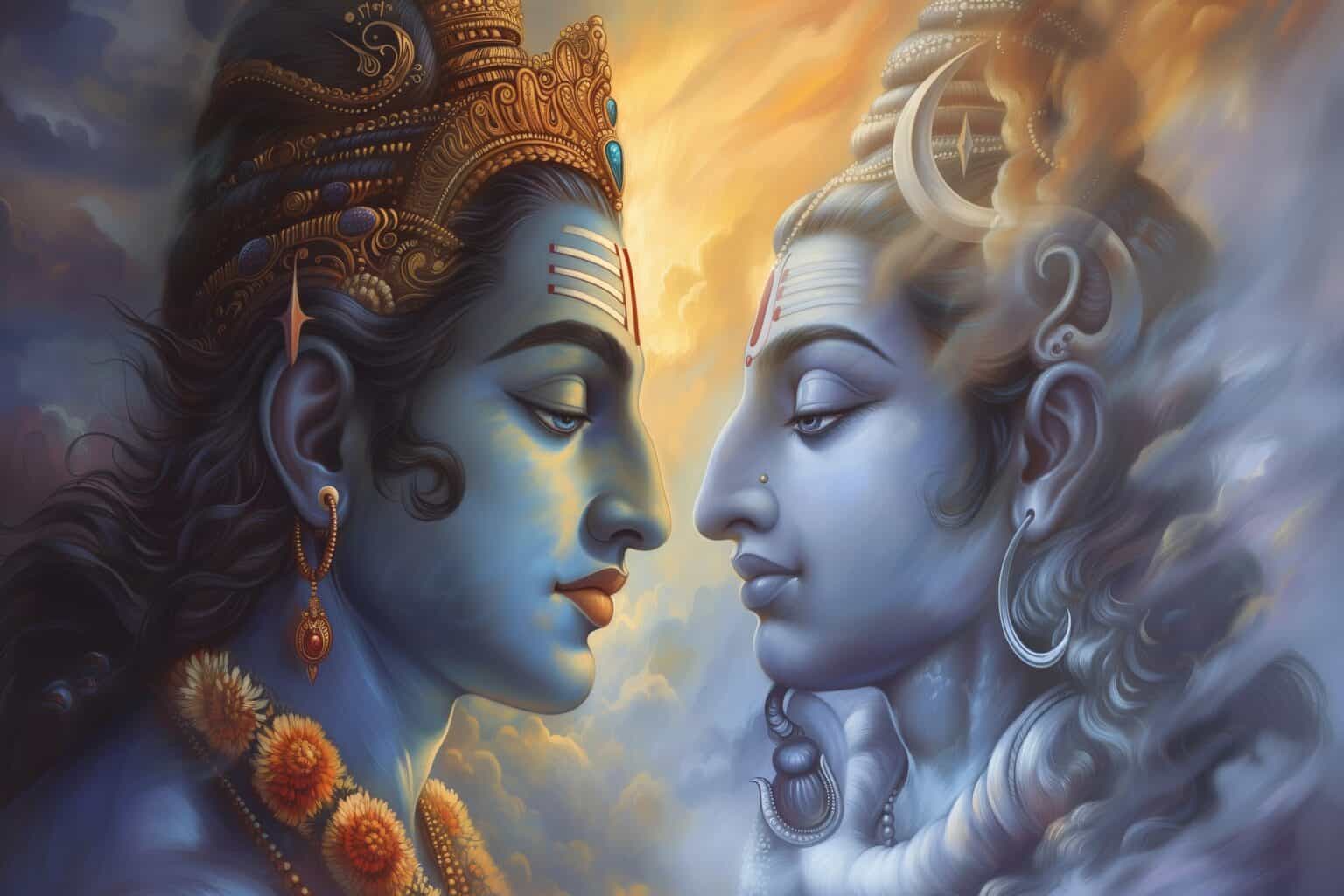
Deva in Hinduism
In Hinduism, “Deva” (often spelled as “Devas”) are divine beings or deities. They are considered celestial or god-like entities responsible for various aspects of the universe and are an integral part of Hindu religious beliefs. Some well-known Devas include Brahma (the creator), Vishnu (the preserver), Shiva (the destroyer), and many others.
Here are some of the most well-known Devas in Hinduism:
Brahma
Brahma is the creator deity in Hinduism. He is often depicted with four faces and is responsible for creating the universe and all living beings.
In terms of age and birth, the concept is quite different in Hindu mythology compared to human notions of time and life. Brahma’s age is measured in terms of ‘Brahma years’, which are vastly different from human years. According to Hindu cosmology, Brahma’s day, known as a ‘Kalpa’, is equivalent to 4.32 billion human years. Each Kalpa is divided into 14 periods called ‘Manvantaras’, each lasting about 306 million human years. At the end of each Kalpa, it is believed that Brahma sleeps and the universe is dissolved, only to be recreated by him when he awakens.
Earth is estimated to be 4.54 billion years old, plus or minus about 50 million years. Scientists have scoured the Earth searching for the oldest rocks to radiometrically date. In northwestern Canada, they discovered rocks about 4.03 billion years old.
In some texts, Brahma is said to have been born from a lotus that emerged from the navel of Vishnu. This lotus is often used as a symbol representing the birth of the cosmos and the creative power of Brahma. Other texts suggest that Brahma was self-born in the water, a concept known as ‘Svayambhu’.
Vishnu
Vishnu is the preserver deity. He is considered the sustainer of the universe and is often depicted with blue skin. Vishnu incarnates in different forms (avatars) to restore cosmic order when it is disrupted.
Like Brahma, Vishnu’s age and birth are complex concepts. Hindu mythology often describes the gods as eternal and beyond the human concepts of time and age. Vishnu, in particular, is seen as a transcendental entity, existing beyond the physical universe. His manifestations or avatars are born into the world, but Vishnu himself, as a deity, is beyond birth and death.
In some narratives, Vishnu is described as sleeping on the cosmic ocean on the serpent Ananta or Shesha, between the cycles of creation maintained by Brahma. From his navel springs the lotus from which Brahma is born, symbolizing the interconnectedness of the divine functions of creation (Brahma), preservation (Vishnu), and destruction (Shiva).
Shiva
Shiva is the destroyer deity and represents the transformative aspect of divinity. He is often depicted as a meditating ascetic or a dancing figure (Nataraja). Shiva is associated with both destruction and regeneration.
Lakshmi
Lakshmi is the goddess of wealth, prosperity, and good fortune. She is often depicted with lotus flowers and is venerated for bringing abundance and happiness.
Saraswati
Saraswati is the goddess of knowledge, arts, and wisdom. She is revered as the source of creativity and inspiration for scholars, artists, and students.
Durga
Durga is a fierce goddess who represents the power of the divine mother. She is often depicted riding a lion and defeating demons, symbolizing the triumph of good over evil.
Ganesha
Ganesha is the elephant-headed deity known as the remover of obstacles. He is widely revered as the god of beginnings and is often invoked at the start of new ventures or endeavors.
